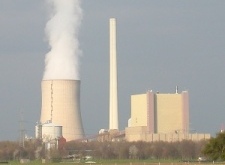 The Royal Academy of Engineering has revealed that by 2020 the UK requires 830,000 graduates in science, technology, engineering and maths yet UK universities currently produce just 23,000 engineering graduates a year.
The Royal Academy of Engineering has revealed that by 2020 the UK requires 830,000 graduates in science, technology, engineering and maths yet UK universities currently produce just 23,000 engineering graduates a year.
This shortfall is having a very real impact on the ability for the UK to deliver on its ambitious engineering goals over the coming years, not least in energy.
With the current government placing nuclear as a central plank in the UK’s future energy mix the importance of investment in both technology and expertise is paramount.
The impact therefore of Engineering and design consultancy Atkins difficulty in finding suitably skilled nuclear engineers in the UK is a worrying trend.
Uwe Krueger, Chief Executive of Atkins explained:
“You cannot believe how scarce these guys are. We are willing to support growth opportunities with resources and to encourage people into the field we have started an internal academy.”
The company has resorted to retraining engineers from other specialisms in nuclear technology in order to meet the growing demand for atomic power expertise.
Martin Grant, Head of Energy at Atkins, explained:
“It’s a problem that is particularly acute in the UK. The nuclear industry has a demographic problem because a lot of people with the experience are now retiring just as we are embarking on an expansive new-build programme in the UK for up to 10 new plants. That is driving up the requirement.”
Yet the nascent reinvigoration of the nuclear industry in the UK faces an existential threat from the Labour party and the Scottish government. That both realistic oppositions in 2015 elections are taking a less than pro-nuclear stance leaves any major role it could play in future fuel mix in potential doubt.
With the first nuclear reactor being built in two decades facing delays before it has begun the climate for a nuclear renaissance is far less than ideal.
Tom Greatex, Shadow Energy Minister has criticised the Hinkley Point project saying:
“We must ensure that consumers are getting the best possible deal in the construction of Hinkley Point C.
“Reports suggest Hinkley Point C is under secret review at the Treasury reinforce the case for the NAO to thoroughly scrutinise the Hinkley deal to ensure it represents value for money.”
Whilst claiming he isn’t anti nuclear, Greatex has made clear he doesn’t see radical re-envisioning of the nuclear market as a way forward:
“Nuclear has an important role in the UK’s transition to a low-carbon power sector [but] no one, including the Chancellor as he drafts his Autumn Statement, should be fooled into thinking that small nuclear reactors are somehow the answer to all our energy needs.”
The SNP’s anti nuclear rhetoric however was significantly plainer with Energy Spokesperson Mike Weir saying:
“Despite the mounting evidence that it is hugely expensive with other stations going vastly over budget and being years behind schedule the UK government are determined to continue to throw billions of pounds into promoting new nuclear.
“By diverting money away from renewables to new nuclear the UK Government’s plans are also damaging the renewables sector.”
“[It] is bad deal that will push up bills and cost the taxpayers a fortune for many, many years to come, [Scotland] neither needs nor wants new nuclear”.
Clearly Atkins are backing the UK to benefit from new nuclear expertise however they are equally confident that even should the UK turn its back on nuclear power under a Labour or Scottish government, the rest of the world will embrace that expertise leaving the UK far behind.
Quite where that leaves us in our search for secure, stable and inexpensive energy supplier is another question entirely.
